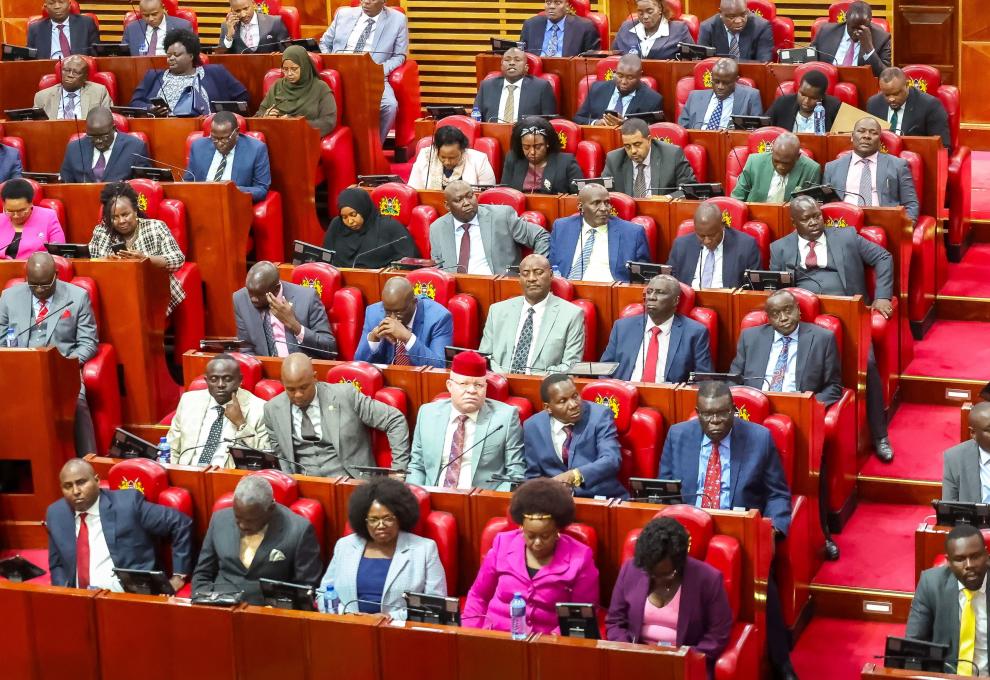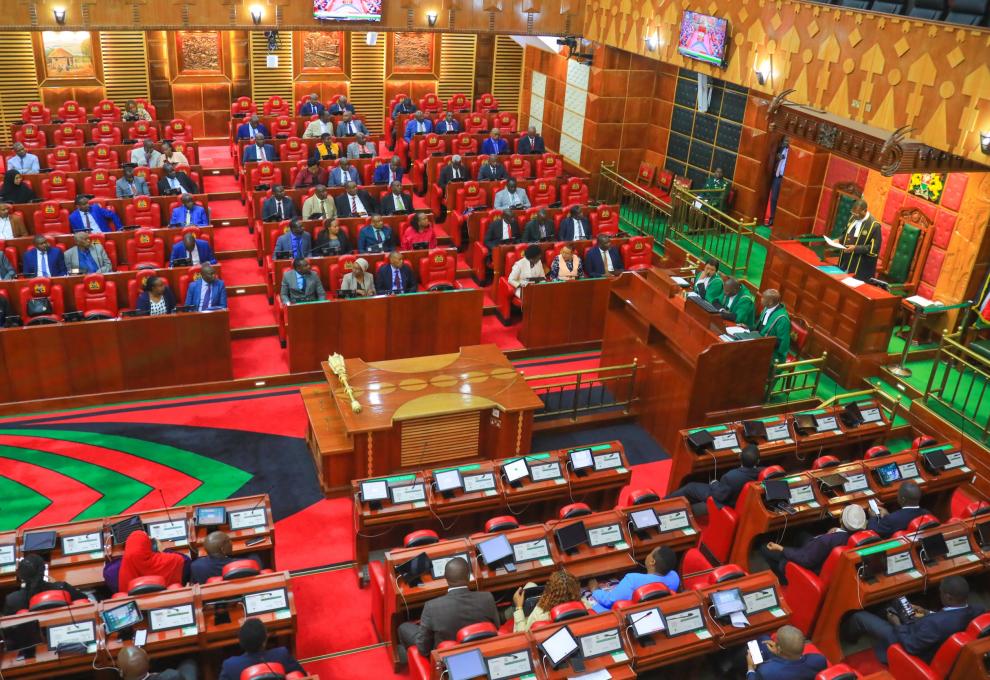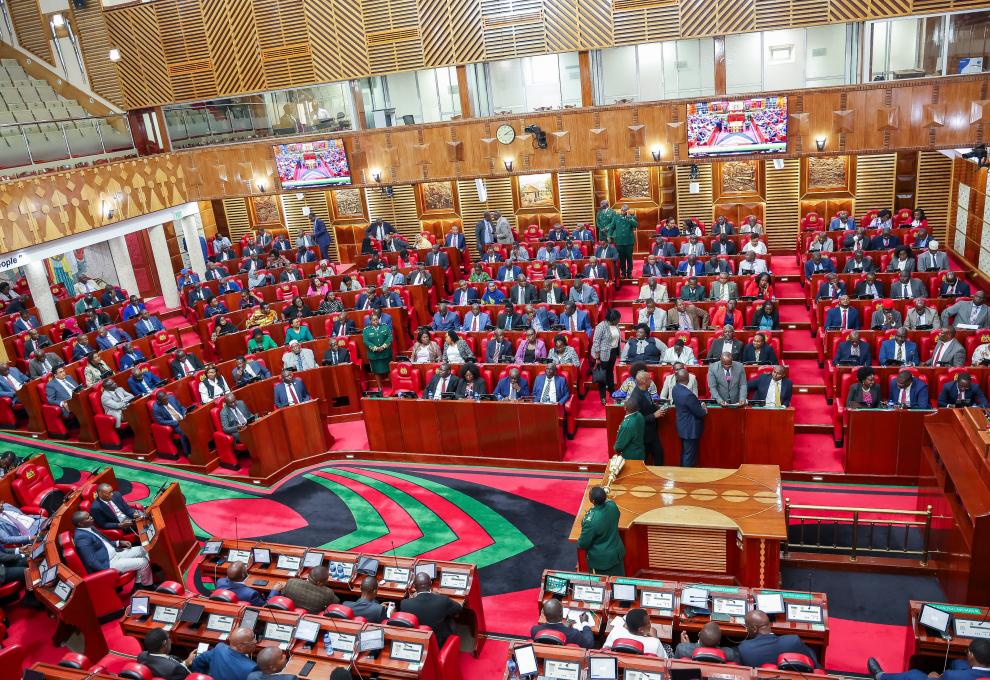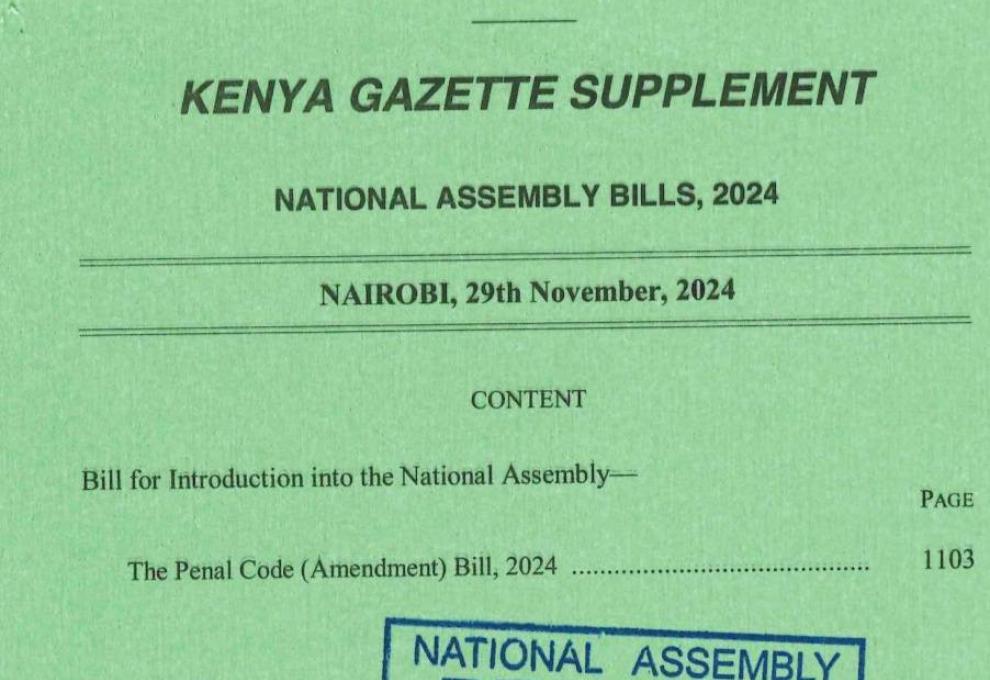𝗖𝗢𝗠𝗠𝗜𝗧𝗧𝗘𝗘 𝗢𝗡 𝗗𝗘𝗙𝗘𝗡𝗖𝗘 𝗖𝗢𝗡𝗧𝗜𝗡𝗨𝗘𝗦 𝗜𝗡𝗤𝗨𝗜𝗥𝗬 𝗜𝗡𝗧𝗢 𝗧𝗛𝗘 𝗖𝗢𝗡𝗗𝗨𝗖𝗧 𝗢𝗙 𝗕𝗔𝗧𝗨𝗞
The Departmental Committee on Defence, Intelligence and Foreign Relations continued the inquiry into the conduct of the British Army Training Unit in Kenya (BATUK) in Kenya.
In a session presided over by Chairperson, Hon Nelson Koech (Belgut), the Committee met Mau Mau war veteran, Mr. Gitu wa Kahengeri, who shared his experience while fighting for the freedom of this country, and the harsh treatment they received from the BATUK.
“We went to war with the British to fight for the young generation in Kenya and not for us. We went to war so that our children can read to whatever stage of education and we are proud that we did that,” Mr. Kahengeri said.
Further he told the Committee that the Mau Mau War Veterans Association came up with written submissions on specific issues of concern with the presence of BATUK in the region over the years and had been submitted.
Hon. Koech thanked the Mau Mau veterans and assured them of the Committee’s commitment to include their submission in their final report, and to also look into the petition filed by the veterans.
“Your information today and your engagement has been extremely resourceful. The liberty and freedom that we enjoy today is courtesy of your work and many others. We will look into your petition and consider it,” Hon. Koech said.
The Committee also heard from the Kenya Veterans for Peace, a Kenya Defence Forces’ military veterans’ organization, who affirmed that there have been some reported cases of injuries to women within or outside the British camp, sexual assaults that have at times resulted in unwanted pregnancies and a persistent lack of investigation by relevant local authorities, on soldiers who are found to have violated the code of conduct.
The officials proposed several recommendations that include a review of the Defense cooperation agreement between Kenya and Britain, protection of women who are potential victims of the soldiers, the British Army to seek alternative places outside Kenya and prohibition of training of the British troops in private foreign owned ranges in Laikipia.
The Kenya Human Rights Commission (KHRC) also appeared before the Committee to present their concerns which centered around reported cases of killings, maiming and assault; infringement on community lands, resources and environmental rights; intimidation of human rights defenders; labour rights for Kenyan employees working at the Barracks and sexual violence and exploitation. KHRC called on the Committee to ensure that the Government swiftly initiates measures to redress these historical and current injustices to ensure a more transparent, fair and just relationship between Kenya and the United Kingdom (UK)
















